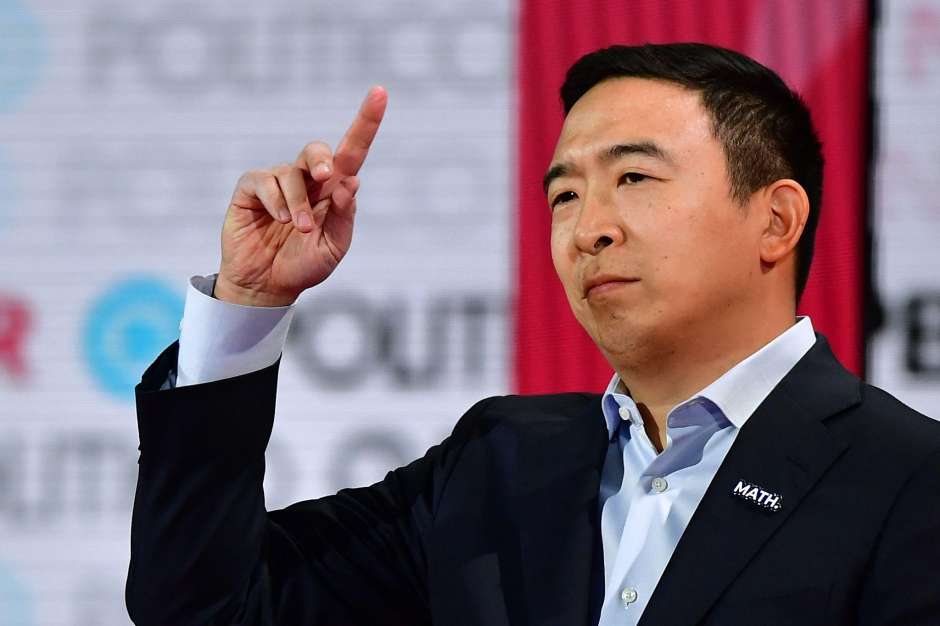California’s Prop. 24 is the Right Framework for America’s Privacy Law

By Andrew Yang, from the San Francisco Chronicle Sep. 28, 2020 Opinion // Open Forum
Americans deserve privacy online. Currently, Big Tech siphons the data of millions of Americans every minute and sells and resells that data for billions of dollars. Most of us never see a dime from any of that. It’s time to put control of data and privacy rights back where it belongs: with ordinary Americans like you and me.
That is why I support Proposition 24, the California Privacy Rights Act. This initiative builds on the foundation of California’s landmark privacy law, passed by the Legislature in 2018, and will provide even greater data control and privacy protection to Californians if it passes. It includes strong measures, such as the creation of a new consumer protection agency to be a watchdog over big tech, and expands on the tools Californians have when companies misuse their data under the law.
Prop. 24 puts money back where it belongs — in the hands of the public. Under the measure, when businesses violate the privacy rights act, they pay into a Consumer Privacy Fund that funds enforcement and monitoring. The act would also provide nonprofit organizations 3% of those funds to advocate for even greater consumer privacy.
But Prop. 24 doesn’t stop there. It also puts cash directly in the hands of Californian consumers. It recognizes that Californians’ data has value, and lets them decide which businesses get their data and under what terms. The idea is simple: If a consumer believes in the mission and values of a business and chooses to patronize it, that person can ask to receive some value in exchange for providing their personal data. A new wave of entrepreneurs and startups is already beginning to help people understand how they can enforce their rights and also be fairly compensated for the use of their data.
This will put power back in the hands of enterprises that people trust, like newspapers and small businesses, and reclaim power from Big Tech and the anonymous data brokers that siphon off data. As such, Prop. 24 ensures that the free press will survive a time of rapid economic transition by enabling media outlets to adopt flexible business models and compete with the deep pockets and foreign actors hoping to influence American journalism and sow misinformation.
Other proposals simply do not match the strength and thoughtfulness of Prop. 24. Alternatives would require all online businesses to offer their services for “free,” even if the business doesn’t have any alternative model to create revenue. This is unsustainable. As we’ve seen for years, if a service is free, the user is the product. Requiring this type of digital system would further marginalize privacy and data rights and make it nearly impossible to provide consumers with meaningful control over their information.
But most importantly, Prop. 24 provides Californians greater control over their data: If they don’t like a business or don’t trust its privacy protections, consumers can tell it that it can’t sell their personal information, and businesses are prohibited from unfairly punishing consumers for exercising these rights. This is a strong new protection, and puts control where it belongs: with the consumer.
Californians could get paid for their data from businesses they like and at the same time, get privacy from those they do not. Get Paid and Get Privacy. GP2. The math just works.
Prop. 24 is at the leading edge of privacy protections. Other forward-looking proposals — those that recognize that consumers must be compensated for the value of their data — are also being discussed nationwide and worldwide. Following the success of the privacy law in Europe, leaders there are investing in “data trusts,” pools of cash that would pay hundreds of millions of Europeans for the use of their data.
I have always believed that we need to make policies that put people first. It’s why I proposed a Universal Basic Income, why I supported Medicare for All, and why I am enthusiastic to support Prop. 24. It creates a new floor for data and privacy rights in the United States, and puts control squarely in the hands of normal Americans, just as it should be.
Andrew Yang is an American entrepreneur and former presidential candidate.